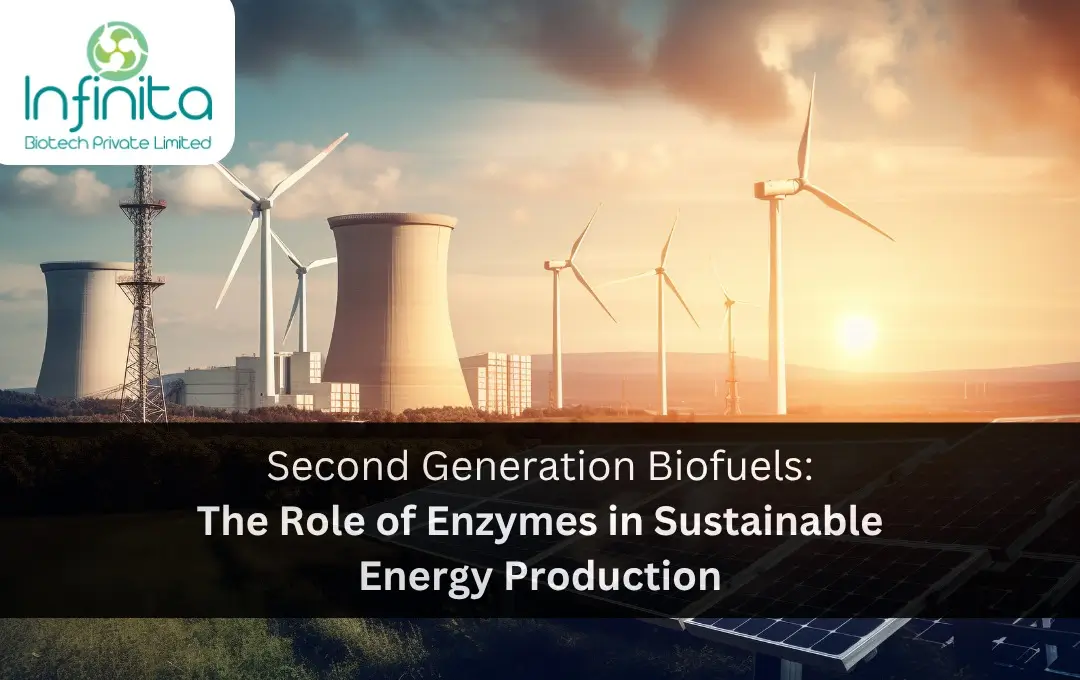As the world races toward carbon neutrality, alternative energy sources are no longer optional — they’re essential. Among these, second generation biofuels are emerging as a promising solution. Unlike their first-generation counterparts, these fuels are derived from non-food biomass like agricultural residues, forestry waste, and organic byproducts. But converting tough, fibrous plant material into usable fuel is no easy task. That’s where enzymes step in — unlocking the true potential of second generation biofuels.
What Are Second Generation Biofuels?
Second generation biofuels are bio-based fuels produced from lignocellulosic biomass — such as corn stover, sugarcane bagasse, wheat straw, and wood chips. Unlike first-generation biofuels made from food crops (like corn or sugarcane), these advanced fuels avoid food-vs-fuel conflicts and make use of agricultural waste that would otherwise go unused or be discarded.
There are two main types:
- Cellulosic ethanol: Produced by breaking down plant cellulose into fermentable sugars.
- Advanced biodiesel: Created using oils derived from non-food crops, algae, or waste fats.
The processing of this biomass is complex, but enzymes are making it significantly more feasible and scalable.
Why Enzymes Matter in Biofuel Production
The key to efficient second generation biofuels lies in breaking down complex plant materials into simple sugars that can be fermented into ethanol or other fuels. Lignocellulosic biomass is made up of three major components:
- Cellulose
- Hemicellulose
- Lignin
Enzymes help hydrolyze cellulose and hemicellulose into fermentable sugars while avoiding harsh chemical processes.
Enzymes Used in Second Generation Biofuel Production
Several specialized enzymes are involved in converting biomass into usable fuel:
1. Cellulases
Break down cellulose into glucose. These are central to the enzymatic hydrolysis stage.
2. Hemicellulases
Target hemicellulose, releasing sugars like xylose and arabinose that yeast can convert to ethanol.
3. Lignin-Modifying Enzymes
Help degrade or modify lignin to expose cellulose for better enzymatic access. While lignin is not fermented, breaking it down increases overall efficiency.
4. Accessory Enzymes
Such as β-glucosidases, which improve sugar conversion rates by removing inhibitory byproducts from the reaction environment.
Advantages of Enzyme-Based Biofuel Processing
Using enzymes in the production of second generation biofuels offers a host of environmental and operational benefits:
- Milder Process Conditions
Enzymes operate under moderate temperatures and pH, reducing the need for extreme processing conditions or corrosive chemicals. - Higher Yield
Efficient hydrolysis leads to more sugar availability for fermentation, increasing fuel output per ton of biomass. - Sustainability
Enzymatic processes generate fewer emissions and less waste, aligning with green manufacturing goals. - Feedstock Flexibility
Enzymes can be tailored to different biomass sources, making the technology adaptable across regions and seasons. - Lower Energy Use
Reduced need for heat and pressure during hydrolysis translates to energy savings and lower costs.
The Road Ahead: Enzymes and Biofuel Innovation
With global governments pushing for renewable energy targets, the role of enzymes in second generation biofuels is gaining traction. Biotech companies are now engineering more robust enzyme blends that can tolerate harsh processing environments and act more quickly on tough biomass. Enzyme cocktails are also being customized for specific feedstocks, further improving yield and process efficiency.
Moreover, innovations like consolidated bioprocessing (CBP) — where a single microbial strain performs enzyme production, hydrolysis, and fermentation — are on the horizon, potentially streamlining the entire biofuel pipeline.
Conclusion
Second generation biofuels represent a crucial step forward in the global transition to cleaner, more sustainable energy. And enzymes are at the heart of this evolution — offering a natural, efficient, and scalable method to convert waste into valuable fuel. As biotechnology continues to advance, enzyme-driven biofuel production will play an even greater role in shaping the future of energy.
For industries, policymakers, and innovators looking to decarbonize energy production, enzymes offer a smart, science-backed path to sustainable transformation.

 Summarize this Article with AI
Summarize this Article with AI
